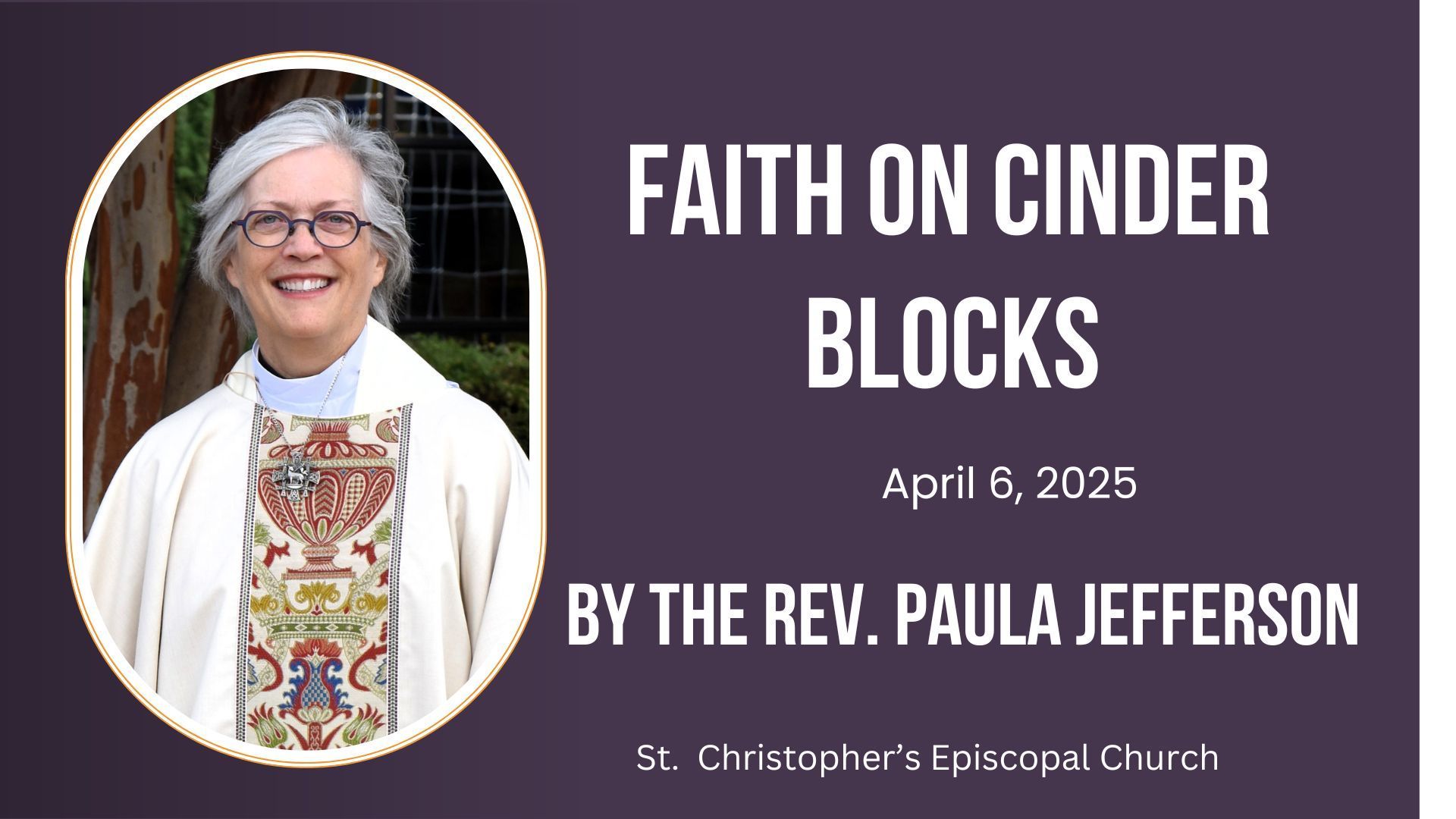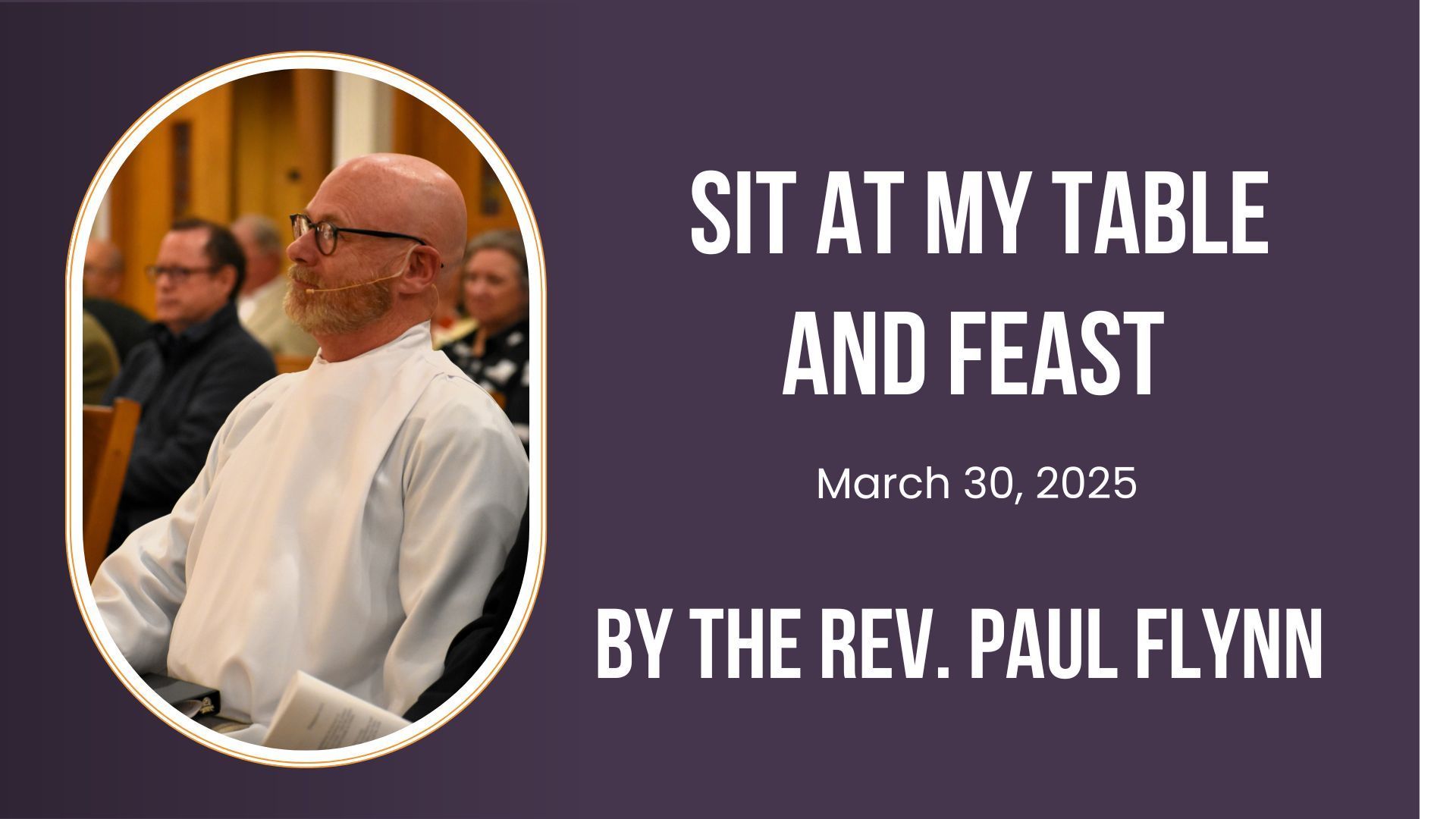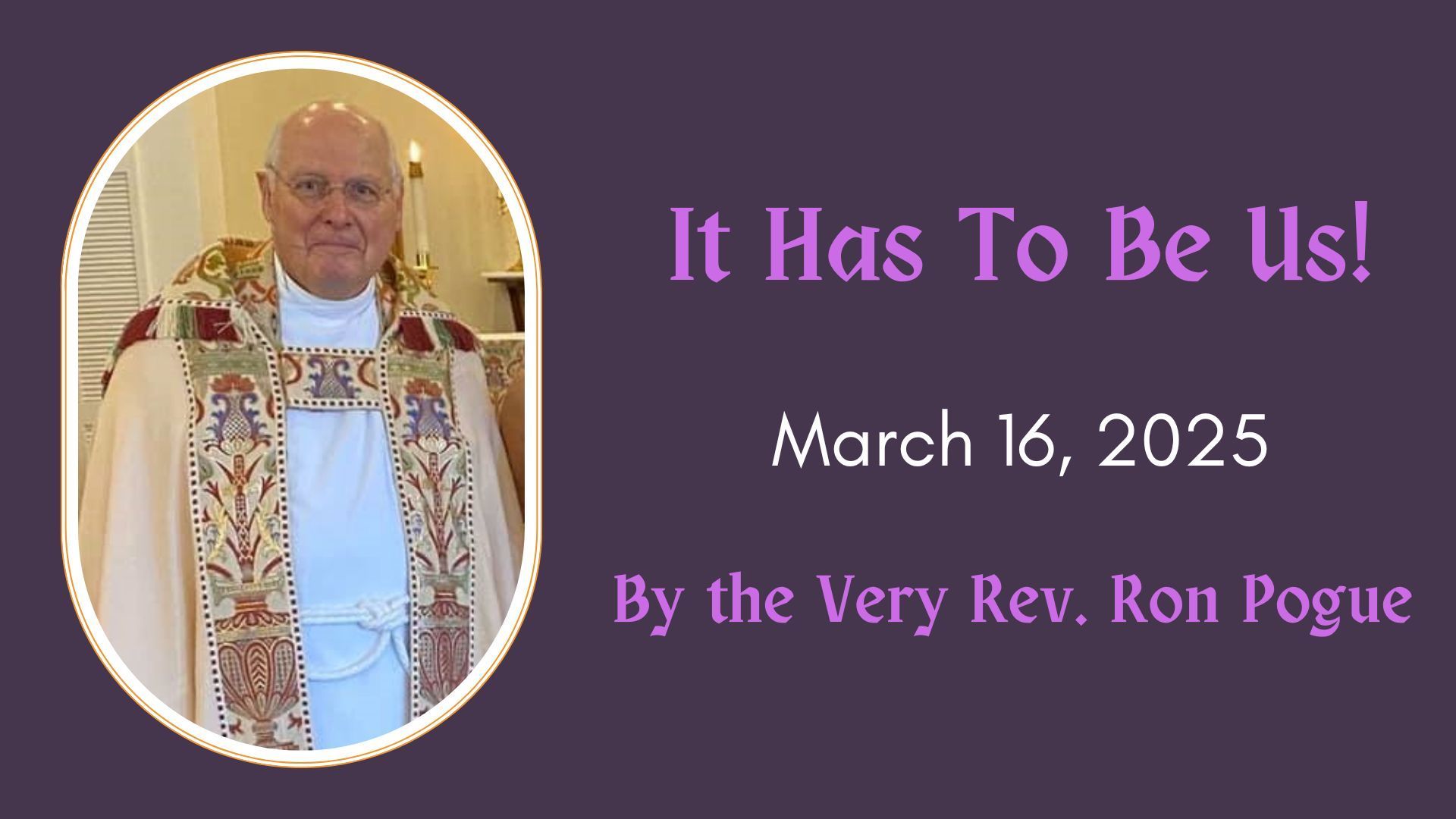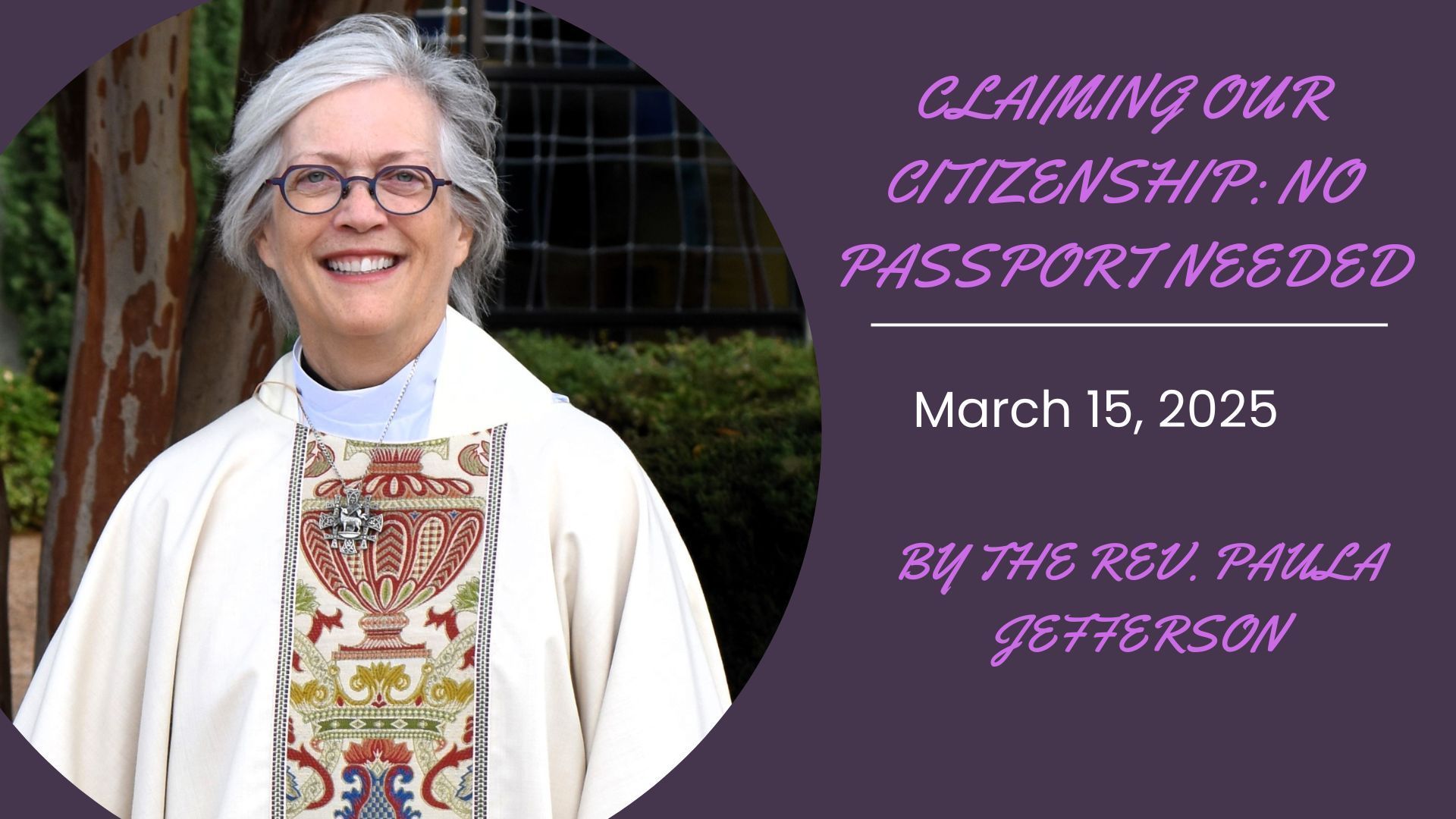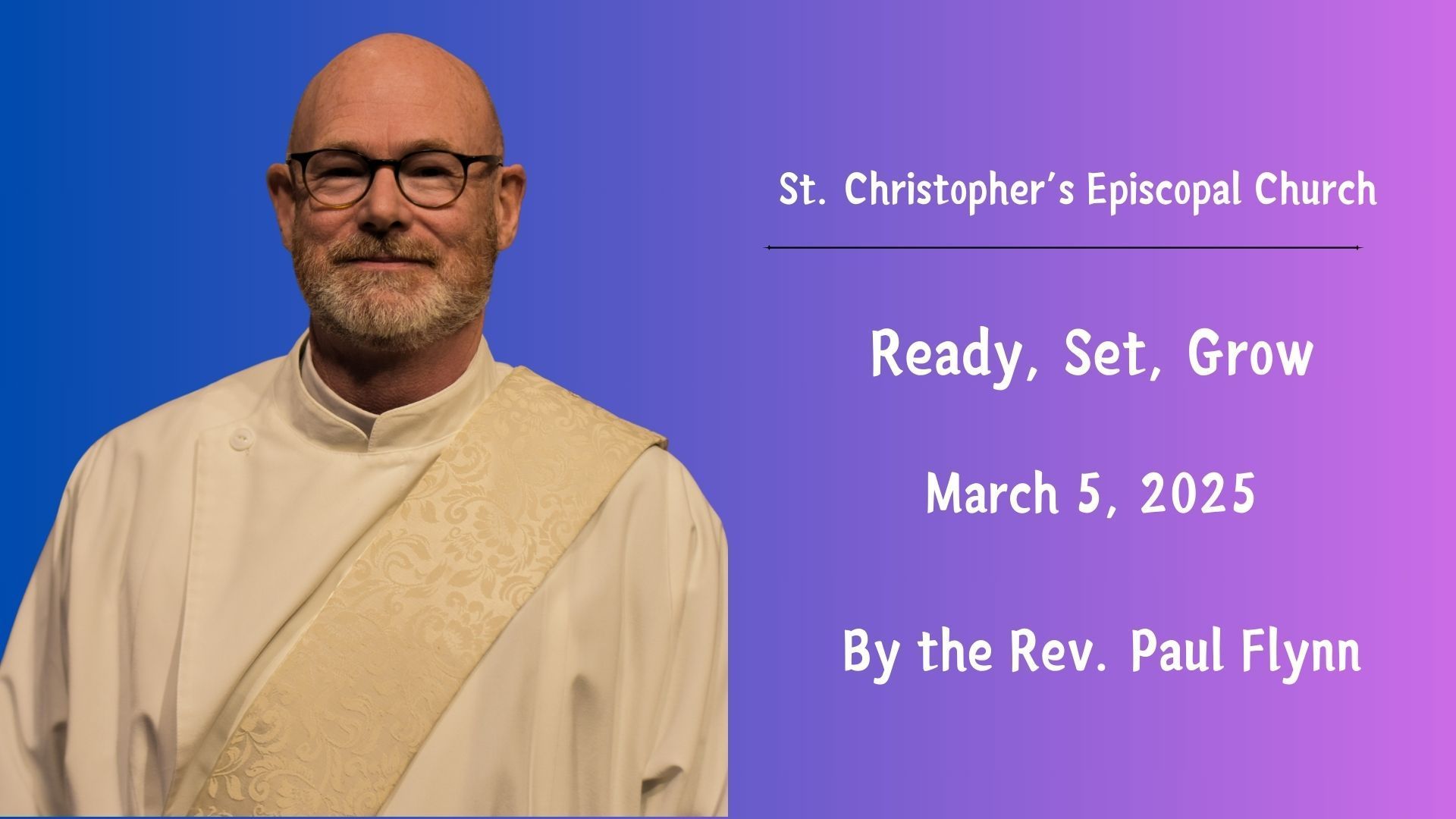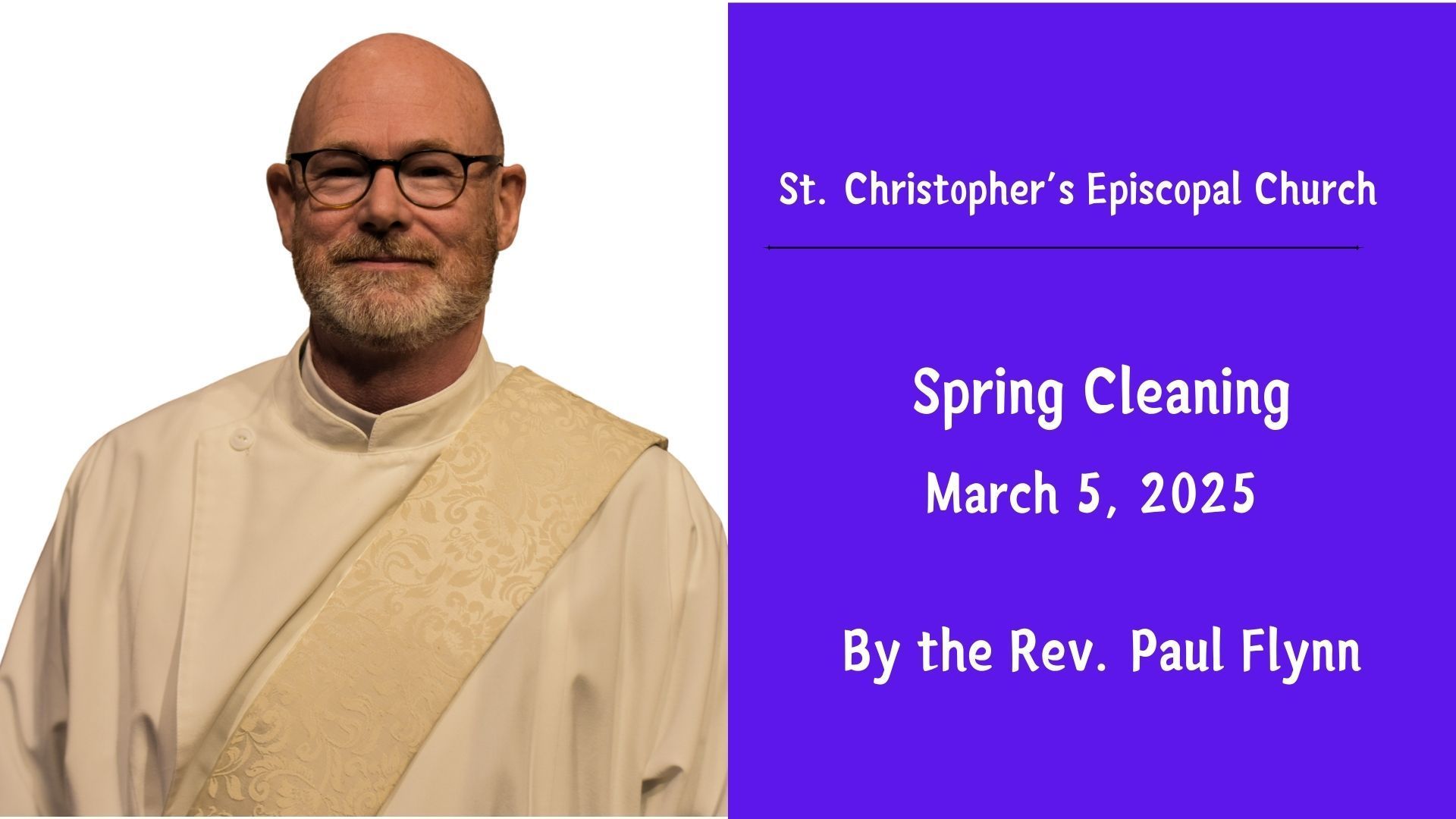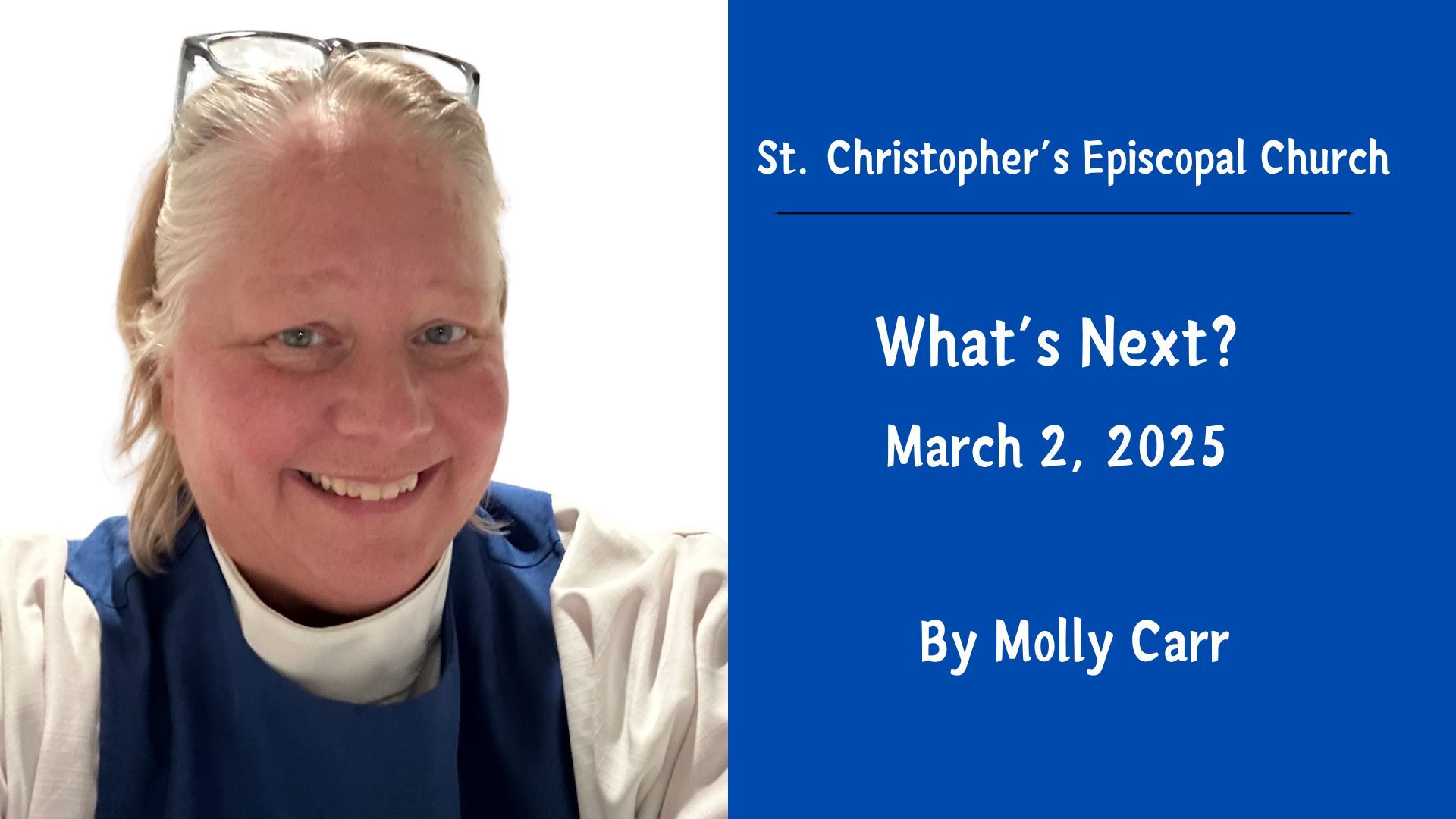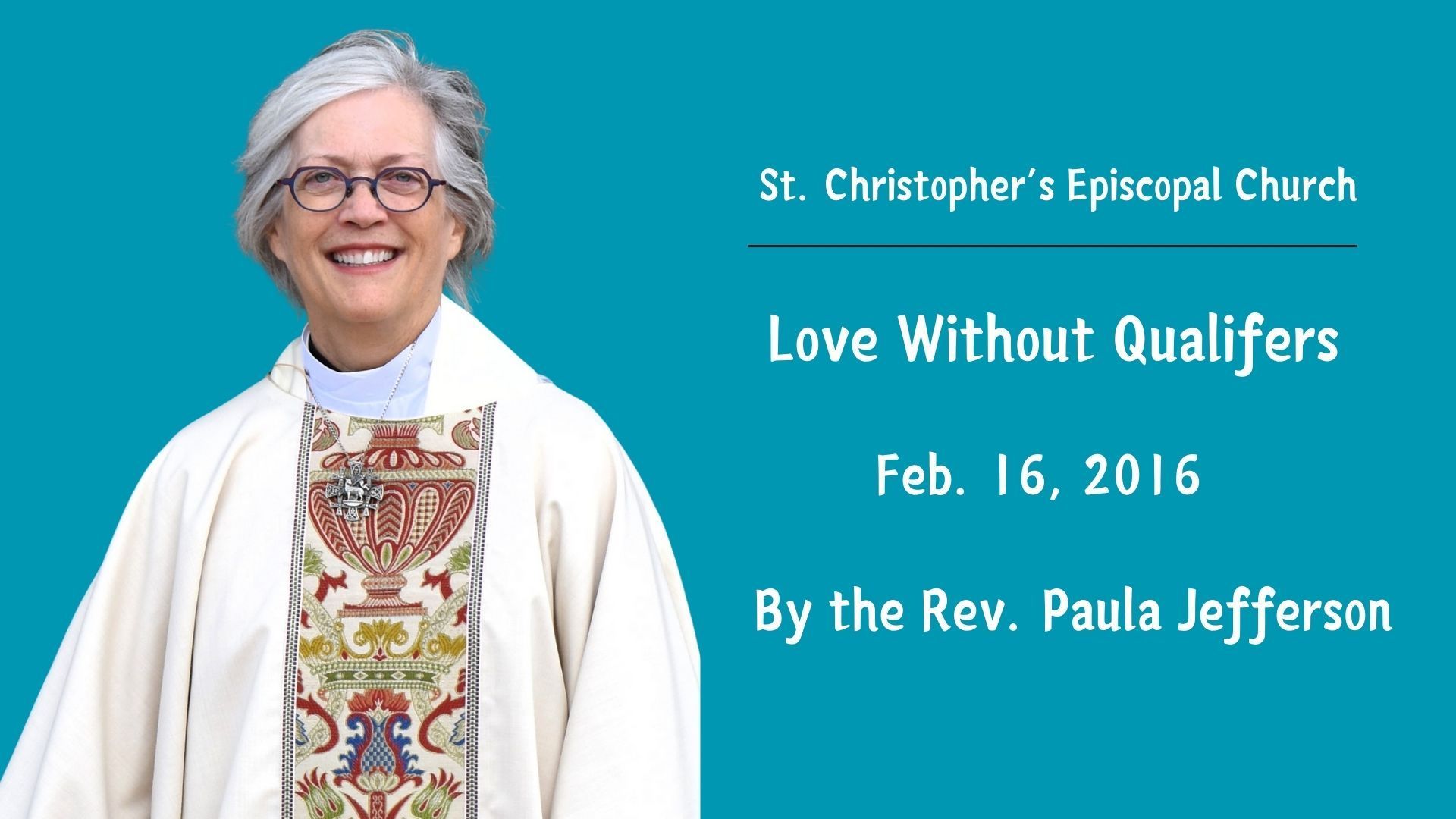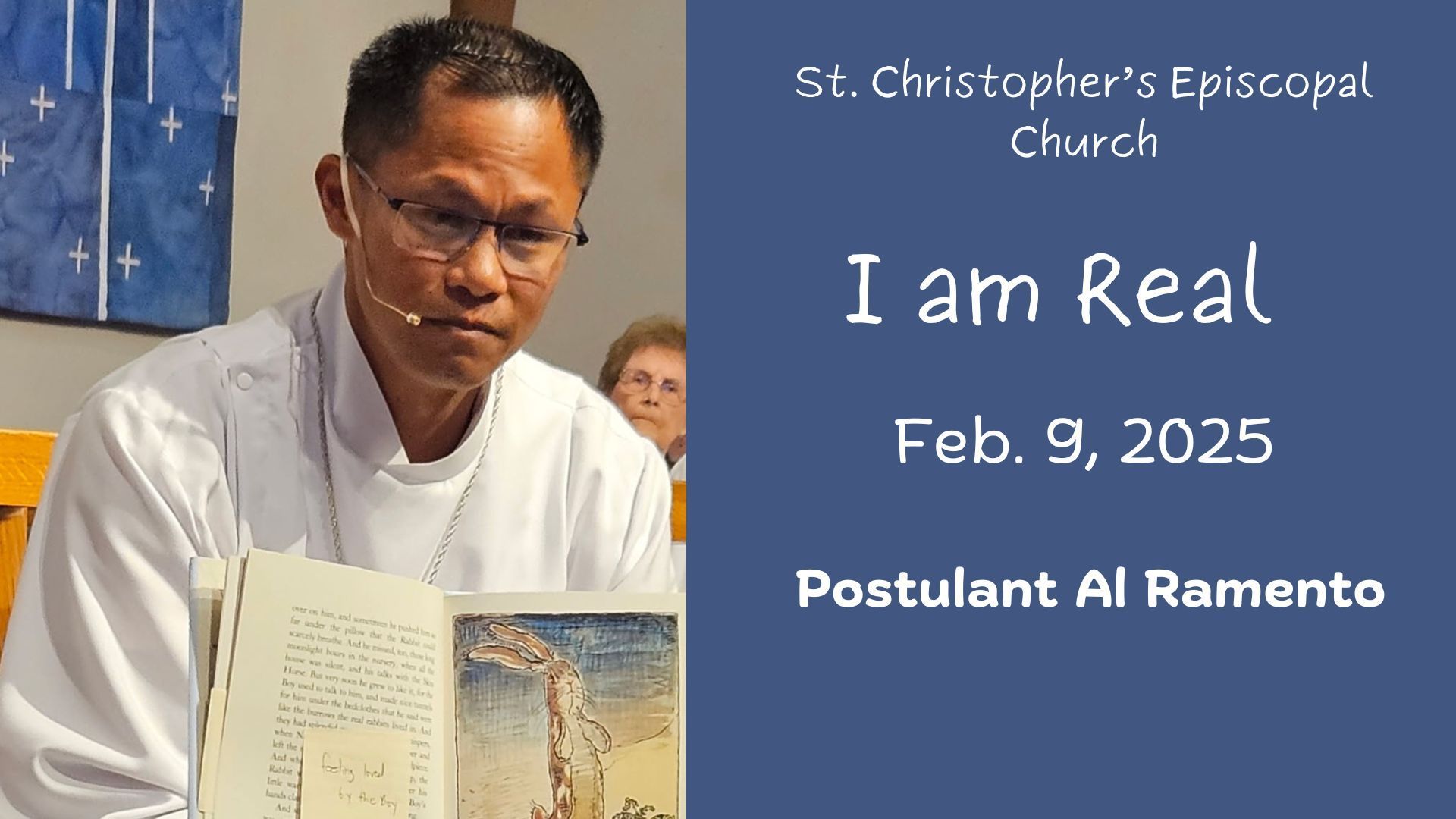Did anyone watch the Saturday Night Live Anniversary Special this week? Fifty years of Saturday Night Live. In preparing for this sermon, I was reminded of one particular character that Mike Meyers developed on SNL in the 1990s. Linda Richmond was modeled on Meyers’ mother in-law. Her famous line was The prince of Tides was about neither princes nor tides. Discuss.
I can hear Linda Richmond’s observation about today’s Gospel reading: Jesus is talking about neither cheeks nor walking. Discuss.
I propose that in this passage, Jesus is trying to teach us what it’s like to live as a child of the most High. This is about Life in the Kingdom, not a list of moral guidelines; it’s a call to transform our everyday lives.
Jesus lays out this challenging and revolutionary way of living even though it flies in the face of the world’s teaching. He invites us to embody love, mercy, and generosity, even toward those who do not deserve it. In short, Jesus is asking us to love others – everyone -- just how God loves us -- fully, radically, knowing our limitations, precisely because we don’t deserve it.
Jesus’ kind of love is radical because it isn’t based on what others do for us or what we do for them, but on the grace of God working in us as God’s children. This is how God loves us. Think about it: God didn’t wait for us to fix ourselves before He sent His Son to show us the way. While we were still lost, He loved us enough to offer us grace.
The African American theologian Howard Thurman reminds us that Jesus’ radical love doesn’t mean we condone their actions. Jesus went to the cross condemning the religious and political authorities who were set to kill him AND, he begged God to forgive them because they didn’t know what they were doing. He broke the circle of retaliation.
I have had three distinct reactions to this teaching. When I first heard it, I thought it was quaint, but not realistic. You know me well enough now, you can see me responding to Jesus, “Now, Lord, you know that isn’t the way the world works.”
My second reaction, later in my life, was one of anger… I’m not playing this game in which people get a free pass, or tyrants get to win.
This morning, though, I don’t feel caught up in my reaction, in my responses, in the details of the cheek and the coat and the walking two miles. What I stand in awe of is that despite the many times that I have denied God, rejected him, refused to follow, ignored his voice, cursed him to his face, God nevertheless loves me and offers me his own self in love.
In every human relationship I have and I suspect you have too, I create a ledger book of credits and debits. Strangely, all my friends and family seem to overdraw their accounts. Left to my own devices, I may or I may not forgive the debt, but most likely I declare them insolvent and write them off.
Jesus reminds us that there are two things fundamentally wrong with our ledger books. First, God’s Kingdom operates on grace. He wants us to show mercy, not because it will benefit us, but because it reflects who God is. Red marks and black marks in a ledger book are meaningless scribbles.
Second, God doesn’t write anybody off. Jesus is clear: don’t judge others and you won’t be judged.
This is another radical statement in a world full of criticism and judgment. We live in a culture that loves to point fingers and condemn others, but Jesus calls us to refrain from judgment.
Why? Again, this is who God is. The Apostle James reminds us that there is but one judge, and it is God, not us. When we judge, we place ourselves in the role of being God.
Forgiveness is powerful stuff. When we choose to forgive, we release the hold that bitterness has over us. In the same way, when we withhold judgment, we open our eyes to who God really is: both the ultimate judge, who can see the whole picture, and the God who loves without measure.
This Kingdom teaching in this passage turns our natural instincts upside down and it calls us to be true to our Baptism and to act like the children of God that we have become in Christ Jesus.
Why? Because this is who God is. Having been the beneficiary of this kind of love, the only thing God is asking from us is that we give to our siblings what God has given to us.
No one said this is going to be easy. To live according to Kingdom principles, we have to see the person who is wronging us as a child of God and then we have to really see them for who they are. The person yelling us is the same person who was yelled at. The person judging us was judged. The one who oppresses us was oppressed and hurt.
But she is still God’s beloved child, worthy of the love we have received.
Don’t get caught up on offering your cheek to the violent or giving your coat away. This week, just ask yourself: How can I love someone who has hurt me? How can I extend mercy and forgiveness? How can I reflect God’s generosity to me in the people I encounter even if they don’t deserve it.
God did, and does the very same for you.
When we live this way, the cheek and the coat will come naturally because we are living out the very heart of the Kingdom of God.
May it be so in my life and in yours.


